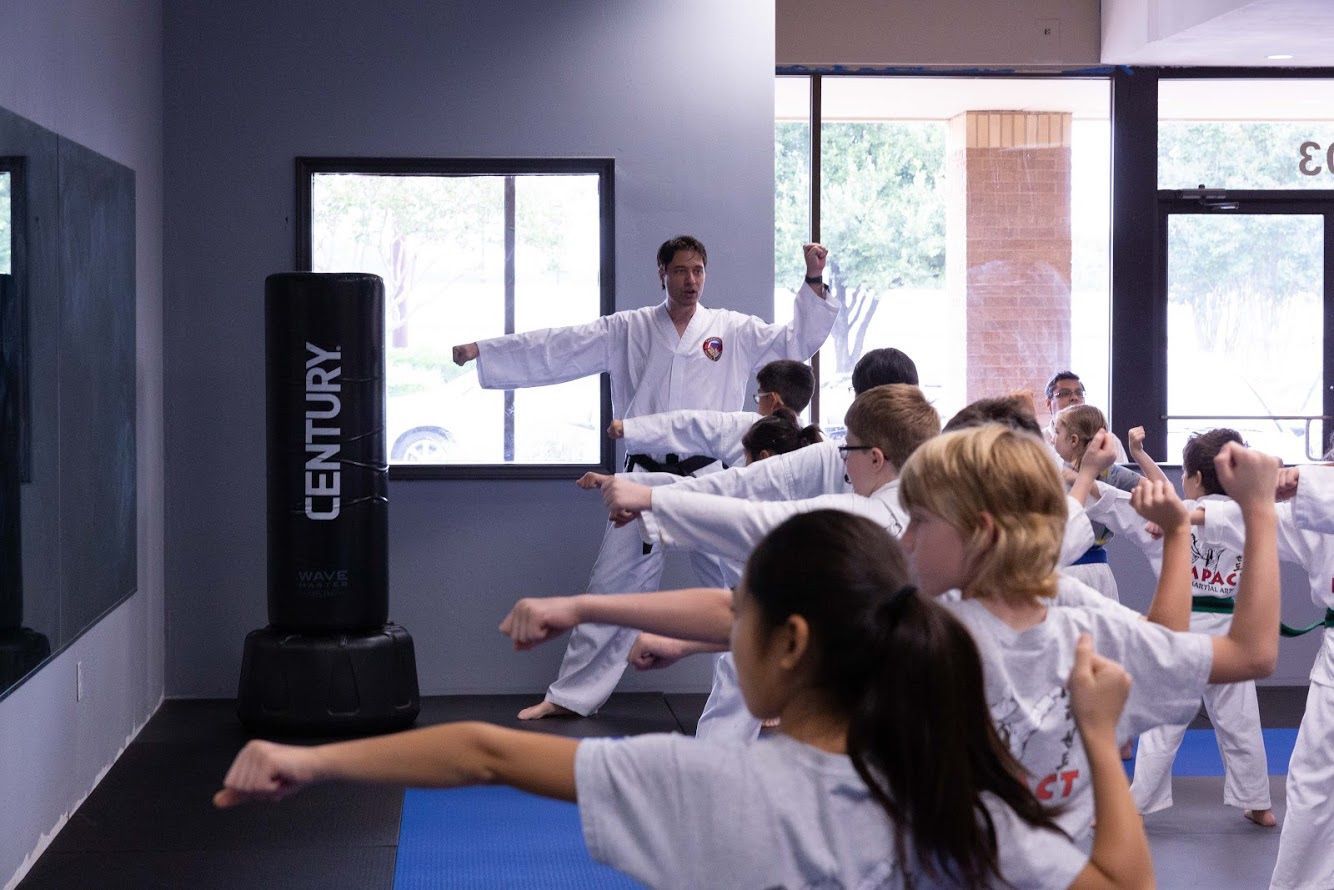You Won't Believe How Martial Arts Can Improve Your Child's Grades and Test Scores
How Martial Arts Can Boost Your Child's Academic Performance
Did you know that martial arts can make your child smarter? It may sound like a bold claim, but there is plenty of evidence to back it up. Martial arts, especially Taekwondo, can enhance your child's cognitive skills, such as concentration, memory, problem-solving, and creativity. These skills are essential for academic success and lifelong learning.
In this article, I will show you how Taekwondo can improve your child's academic performance, based on scientific research and personal experience. I will also give you some practical tips on how to get started with Taekwondo for your child. Whether you are a parent, a teacher, or a student, you will find this article useful and inspiring.
How Taekwondo can improve your child's concentration and focus
One of the most important benefits of Taekwondo for your child's academic performance is that it can improve their concentration and focus. Taekwondo requires your child to pay attention to the instructor, the movements, the opponent, and the environment. They have to be aware of what is happening around them and react accordingly. This trains their attention span and their ability to filter out distractions.
For example, when your child learns a form, which is a sequence of movements, they have to remember each step and execute it with precision and power. They have to coordinate their eyes, hands, feet, and breath. They have to follow the rhythm and the tempo. They have to balance their body and their mind. This is a great exercise for their concentration and focus.
Studies have shown that Taekwondo can boost your child's concentration and focus. For instance, a study by Lakes and Hoyt (2004) found that children who practiced Taekwondo for 14 weeks improved their attention and self-control more than children who did not. . Another study by Fong and Ng (2011) found that children who practiced Taekwondo for 12 weeks improved their selective attention and response inhibition more than children who did not.
These skills are very helpful for your child's academic performance. They can help your child listen to the teacher, follow instructions, complete assignments, and avoid distractions. They can also help your child cope with stress, anxiety, and boredom, which can interfere with their learning.
How Taekwondo can enhance your child's memory and recall
Another benefit of Taekwondo for your child's academic performance is that it can enhance their memory and recall. Taekwondo challenges your child to memorize and recall various information, such as names, commands, techniques, and rules. They have to store and retrieve this information in their short-term and long-term memory.
For example, when your child recites an oath, which is a statement of values and principles, they have to remember each word and say it with conviction and respect. They have to understand the meaning and the significance of the oath. They have to repeat it every time they start and end a class. This is a great exercise for their memory and recall.
Studies have shown that Taekwondo can improve your child's memory and recall. For instance, a study by Chaddock et al. (2010) found that children who practiced martial arts for one year improved their spatial memory more than children who did not. . Another study by Kim et al. (2011) found that children who practiced Taekwondo for 16 weeks improved their verbal memory more than children who did not.
These skills are very helpful for your child's academic performance. They can help your child study for tests, recall facts, solve problems, and participate in discussions. They can also help your child develop their vocabulary, comprehension, and reasoning.
How Taekwondo can develop your child's problem-solving and creativity
A third benefit of Taekwondo for your child's academic performance is that it can develop their problem-solving and creativity. Taekwondo encourages your child to think critically and creatively, such as finding solutions, adapting to situations, and expressing themselves. They have to use their logic, intuition, and imagination.
For example, when your child spars, which is a simulated combat with a partner, they have to find the best way to attack and defend. They have to analyze their opponent's strengths and weaknesses. They have to adjust their strategy and tactics. They have to use their creativity and innovation. This is a great exercise for their problem-solving and creativity.
Studies have shown that Taekwondo can enhance your child's problem-solving and creativity. For instance, a study by Kim and Lee (2015) found that children who practiced Taekwondo for 12 weeks improved their divergent thinking and originality more than children who did not. https://www.wordsthatsing.com.au/post/how-to-write-ogilvy. Another study by Kim et al. (2018) found that children who practiced Taekwondo for 16 weeks improved their convergent thinking and flexibility more than children who did not. https://copyblogger.com/writer-files-seth-godin/.
These skills are very helpful for your child's academic performance. They can help your child analyze data, apply concepts, write essays, and make projects. They can also help your child discover their interests, talents, and passions.
How to get started with Taekwondo for your child
Now that you know how Taekwondo can boost your child's academic performance, you may be wondering how to get started. Here are some practical tips:
• Find a reputable Taekwondo school near you. You can search online, ask for recommendations, or visit different schools. Look for a school that has qualified instructors, a safe and clean facility, a friendly and supportive atmosphere, and a curriculum that suits your child's age and level.
• Enroll your child in a trial class. Most Taekwondo schools offer a free or discounted trial class for new students. This is a great way to see if your child likes Taekwondo and if the school is a good fit. You can also observe the class, talk to the instructor, and ask questions.
• Get the necessary equipment. Your child will need a uniform, a belt, and a pair of shoes to practice Taekwondo. Some schools may provide these items or sell them at a reasonable price. You can also buy them online or at a sporting goods store. Make sure the equipment is comfortable, durable, and appropriate for your child's size and style.
• Encourage your child to practice regularly. Taekwondo is a skill that requires consistent practice and dedication. Your child should attend classes at least twice a week and practice at home as well. You can help your child by setting a schedule, providing feedback, and celebrating their progress.
• Support your child's learning and growth. Taekwondo is not only a physical activity, but also a mental and emotional one. Your child will learn valuable lessons and face various challenges. You can support your child by being positive, respectful, and encouraging. You can also join your child in learning Taekwondo or watch them perform at demonstrations and competitions.
Conclusion
Taekwondo is a wonderful martial art that can boost your child's academic performance. It can improve their concentration, memory, problem-solving, and creativity. It can also benefit their physical, mental, and social well-being. Taekwondo is easy to learn, fun to do, and rewarding to master.
If you want to give your child the gift of Taekwondo, you can start today by following the tips in this article. You will be amazed by the results and the difference it will make in your child's life.
Taekwondo is not just a sport, it's a way of learning. Let your child discover the power of Taekwondo today.


